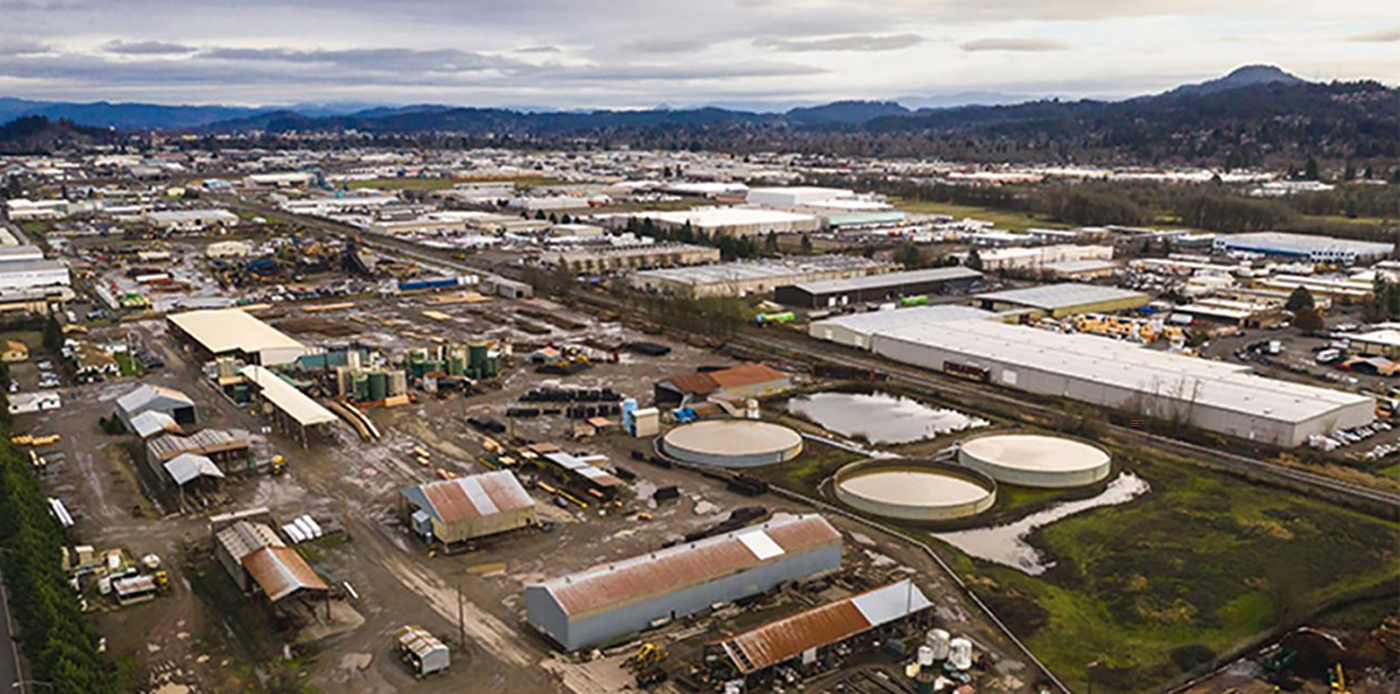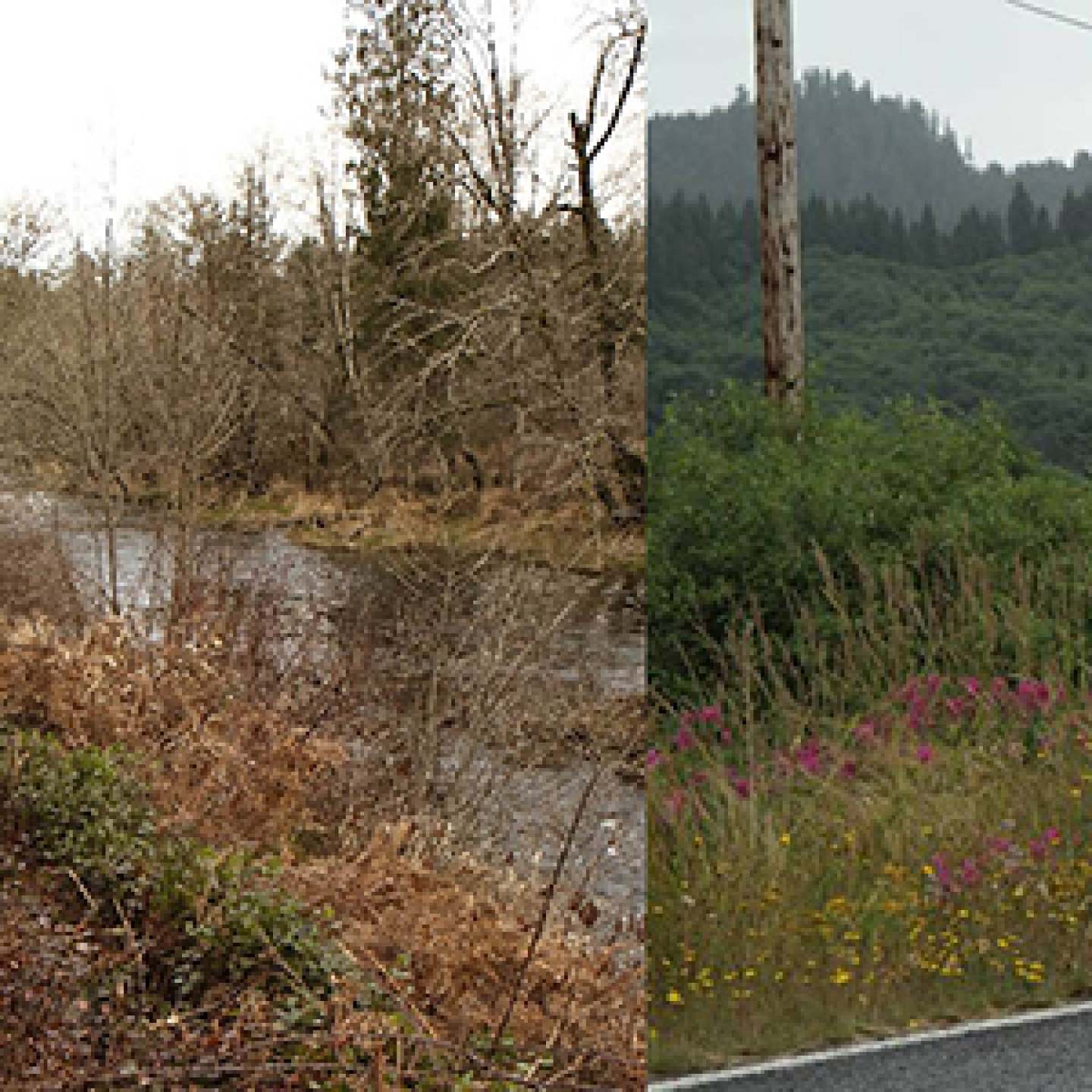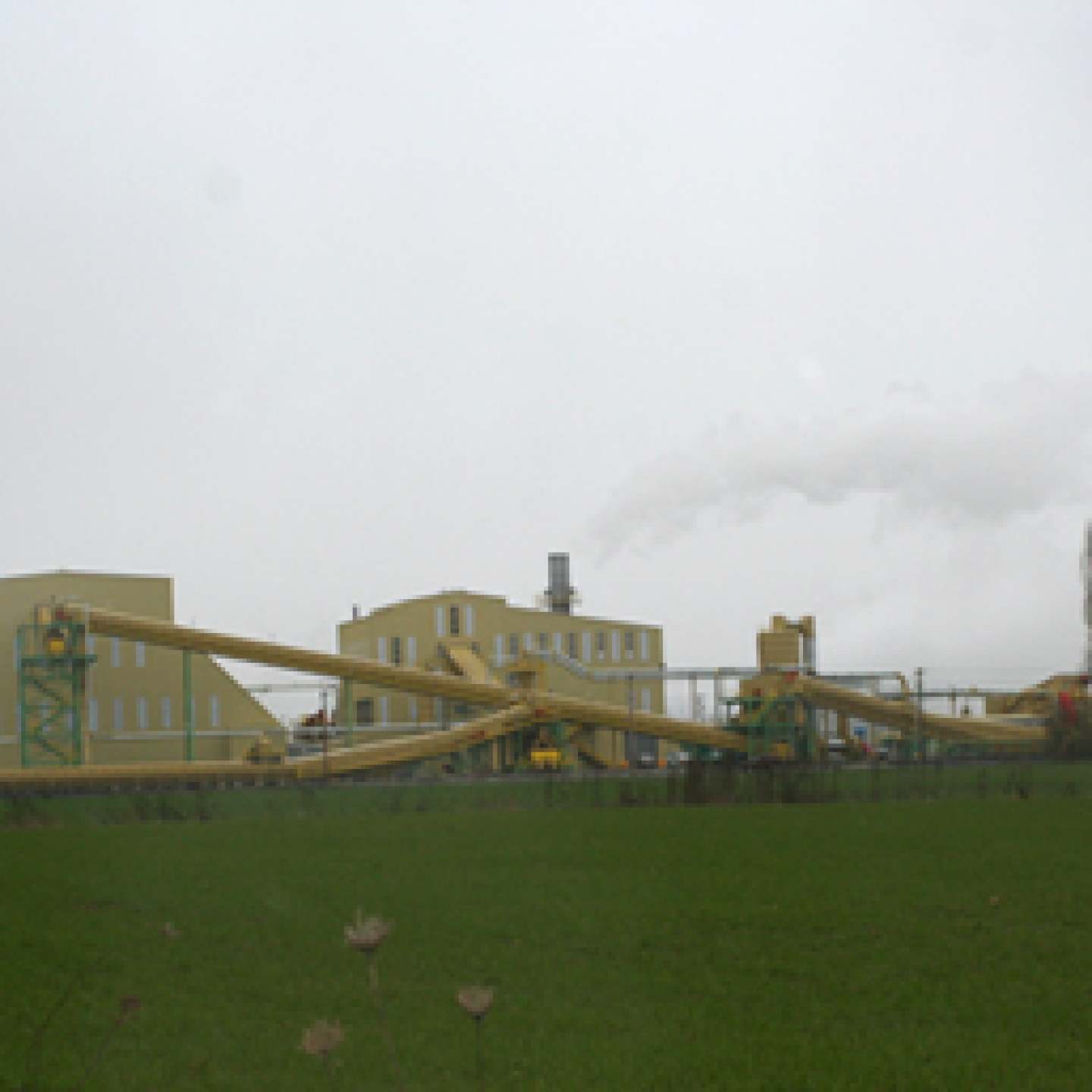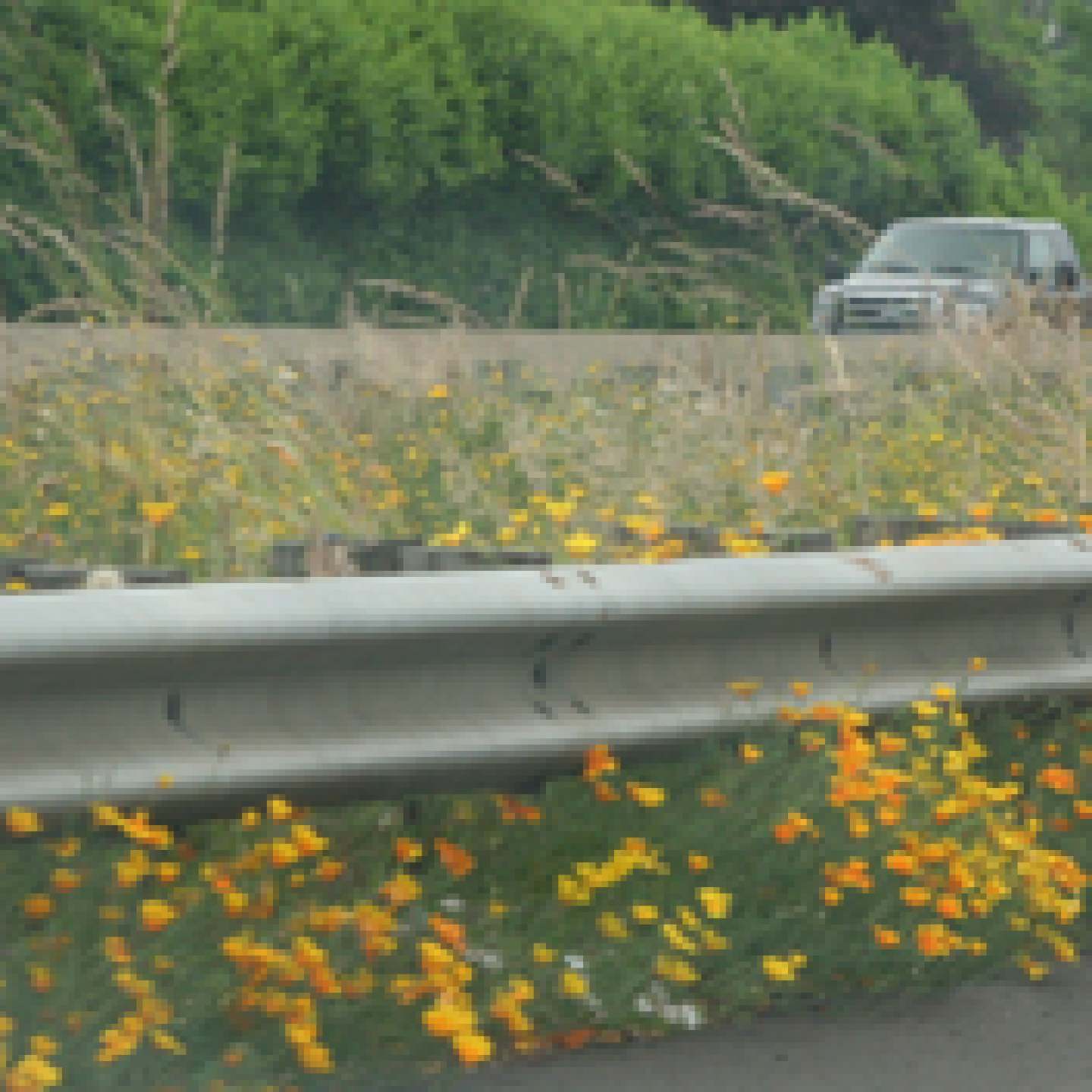
Aerial view of JH Baxter creosote factory in West Eugene.
When J.H. Baxter shut down in January 2022, the community heralded a new era of cleaner air and more livable neighborhoods. This creosote chemical company polluted both nearby communities and its own workers for seven decades. The day after the plant ceased operations, nearby neighbors could suddenly take in a breath of air without coughing, getting a headache or feeling nauseous.
Dishonorably, like the black tar stain of creosote, J.H. Baxter continues to leave its sticky, foul mark on its Bethel neighbors. Shielding itself from the consequences of intentional toxic chemical trespass is the company’s signature legacy.
J.H. Baxter takes advantage of our community in three major ways
POLLUTE
First, J.H. Baxter for years exposed residents to air polluted with a sinister cocktail of naphthalene, ammonia, methanol, acetaldehyde, and a much longer list of nasty chemicals. At the same time its Bethel factory contaminated groundwater with pentachlorophenol (a carcinogen) and soil with dioxin (a carcinogen). Both provoked above-average health problems that afflict many long-suffering residents.
DISPUTE
Secondly, J.H. Baxter violated environmental protection laws in full view of our federal and state agencies. Regulators knew that the company was a repeat, intentional polluter and declared it a Significant Non-Complier as far back as 2012. Sadly, nothing changed. As environmental violations mounted and grew in severity, J.H. Baxter employed the corporate tactic of dispute-and-delay to dissuade agencies from holding it to account and issuing appropriate civil penalties. The company is responsible for at least one Superfund site in California and hazardous chemicals spills in the Columbia River. Like a white-collar crime thriller on the big screen, this corporate tycoon took advantage of its wealth and political ties to silence workers and manipulate the system. These deceits enabled J.H. Baxter to emerge unscathed, time after time.
SCOOT
Finally, when cornered by indisputable revelations of dioxin in the soil of nearby neighborhoods, J.H. Baxter forced regulatory agencies to go to court, buying time and spending taxpayer dollars. J.H. Baxter employed this tactic again when it was fined $305,440 for egregious violations of hazardous waste and water quality laws from 2015 to this year. It used the courts to dispute evidence of violations and to protest civil fines. Beyond Toxics became a legal petitioner to represent community interests and make sure pollution victims’ experiences were considered. After dragging out the litigation for nearly a year, on July 14, J.H. Baxter signed a settlement agreement to pay the full $305,440 immediately. The agreement was used to resolve the enforcement actions by the DEQ.
Here’s where J.H. Baxter performs the evasive “scoot” maneuver, continuing its historical pattern of violating the community’s trust, signing documents in bad faith and skirting Oregon laws: The company refuses to pay their $305,440 debt, and appears have no intention of paying the fine even though they signed the settlement agreement.
Further, the company refuses to make any effort to pay for the dioxin cleanup of residential yards in Bethel neighborhoods that are now contaminated from years of negligent environmental violations.
PROFITS, LIKE ITS POLLUTION, UP IN THE AIR
Although the company has not declared bankruptcy, Company CEO Georgia Baxter claims that years of corporate profits simply vanished. Thankfully, the Oregon Department of Justice and the Oregon DEQ are scrupulously investigating how the State can recoup the money owed in civil penalties and the millions of dollars being spent on cleaning up the dioxin mess, both on the polluter’s property and in the yards of nearby Bethel residents.
However, DEQ’s options are murky under Oregon law. For example, the agency has been unable to recover even a penny from all the equipment and chemicals J.H. Baxter has sold off since it closed.
J. H. Baxter has figured out it can pollute, dispute and scoot – with impunity.
WE CAN LEARN FROM THIS
Eugene should not allow a similar toxic fiasco to happen again! Now is the time to stand up and demand polluter accountability. Beyond Toxics is working with City Councilors Claire Syrett and Randy Groves to design policies with the teeth to protect our communities. We residents of Eugene must mandate strong requirements to end chronic polluter malfeasance. Our legislature must give our regulatory agencies more tools to rein in chronic polluters.
Help us pass meaningful policies that build public health criteria in our zoning codes. Contact us to find out more about upcoming hearings on the Public Health Overlay Zone. Read our J.H. Baxter FAQ sheet. Your City Councilor needs to hear directly from you that Eugene must adopt solutions that will get our community on a clear path to end the dodgy cycle of pollute, dispute and scoot.
~ Lisa Arkin, Executive Director
See also: "Opinion: Eugene can prevent toxic fiascoes like J.H. Baxter's from happening again"
Lisa Arkin, publshed in the Eugene Register-Guard, Sept. 25, 2022
Read Register-Guard's most recent reporting on the J.H. Baxter issue










